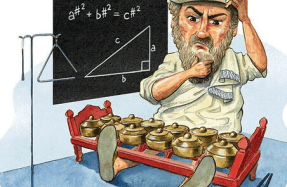His Majesty’s pleasure


Arguably no monarch was more enthusiastic in taking centre-stage than Louis XIV of France. And quite literally centre-stage. As a seasoned dancer in the Court ballets, he danced some 80 roles – most famously of all that of the rising sun in . It was a role that the 15-year old aspired to live up to throughout his reign, and it supplied his soubriquet: The Sun King. But although the theatre-loving Louis included plans for a great opera house in his ambitions for expanding the palace at Versailles, he didn’t live to see the fulfilment of his musical dreams. And so it would fall to his successor to witness the grand curtain-up. There was an incentive to get it built, too. The theatre had to be ready for the nuptials of the Dauphin and Archduchess Marie Antoinette of Austria in 1770. Which it was, just. And so, along with Beethoven, it had a 250th
You’re reading a preview, subscribe to read more.
Start your free 30 days



